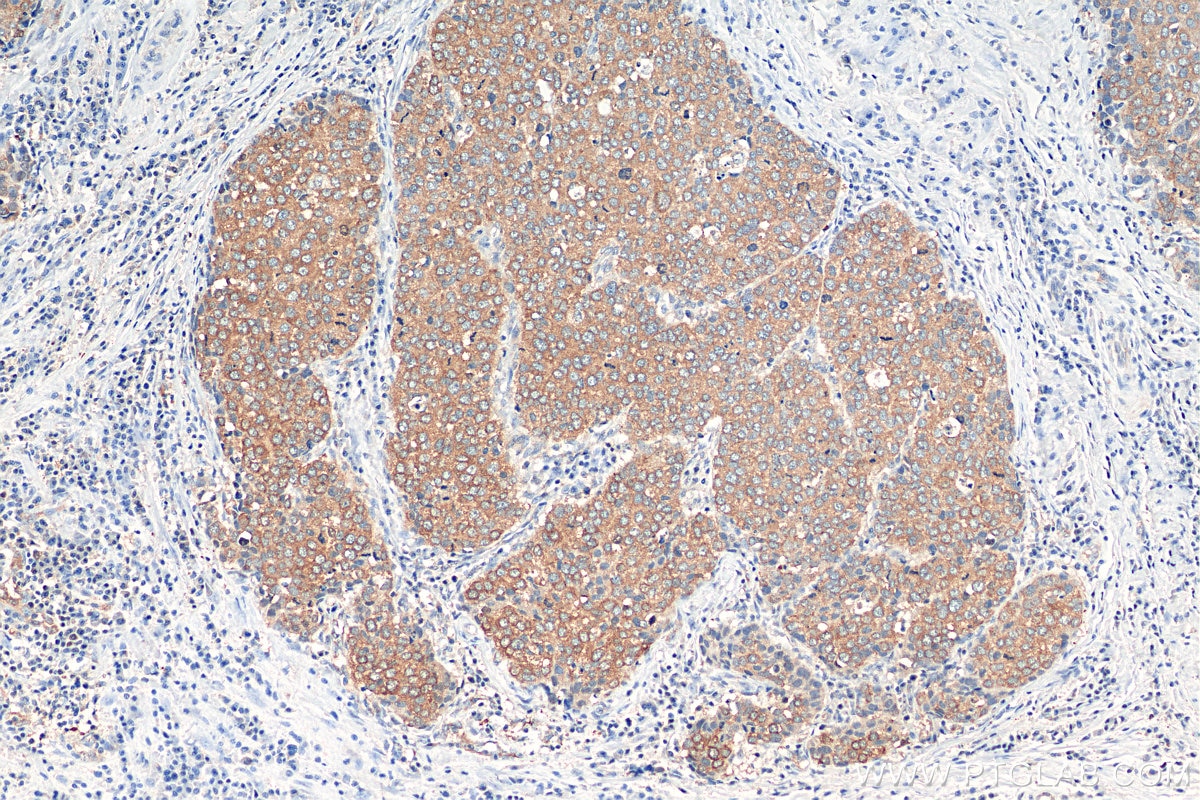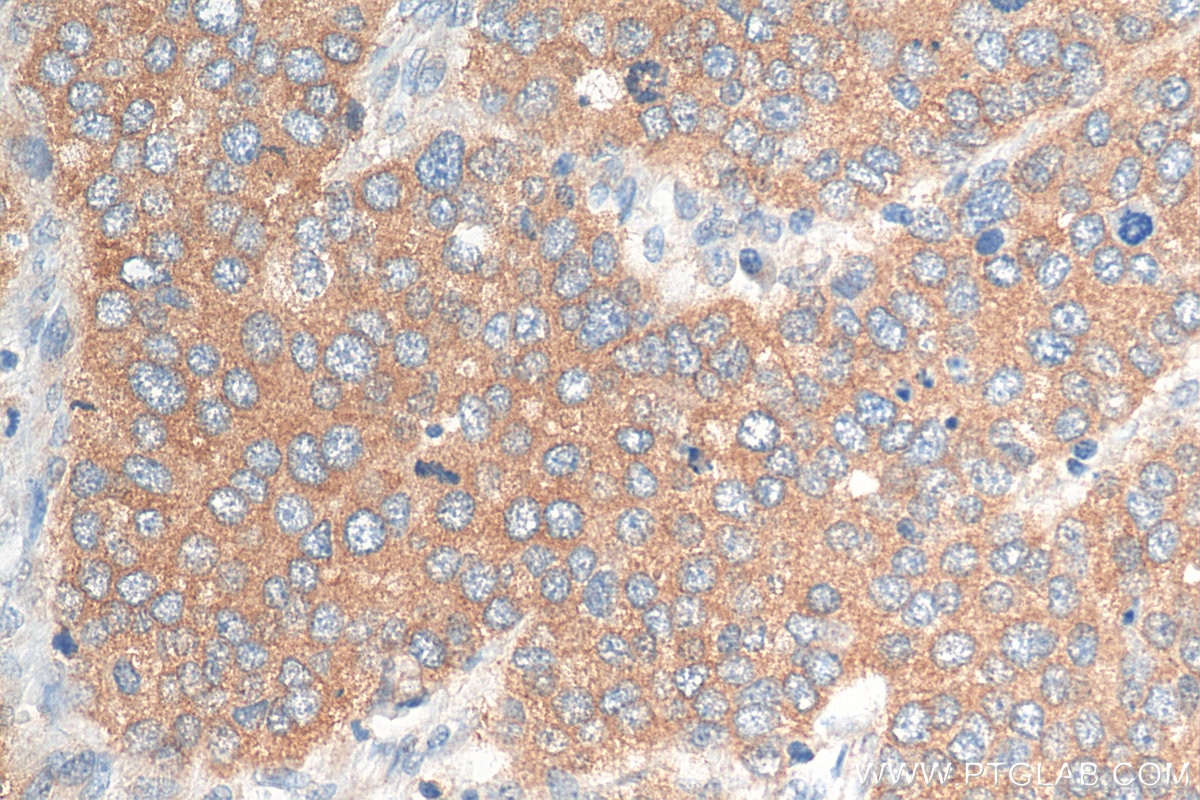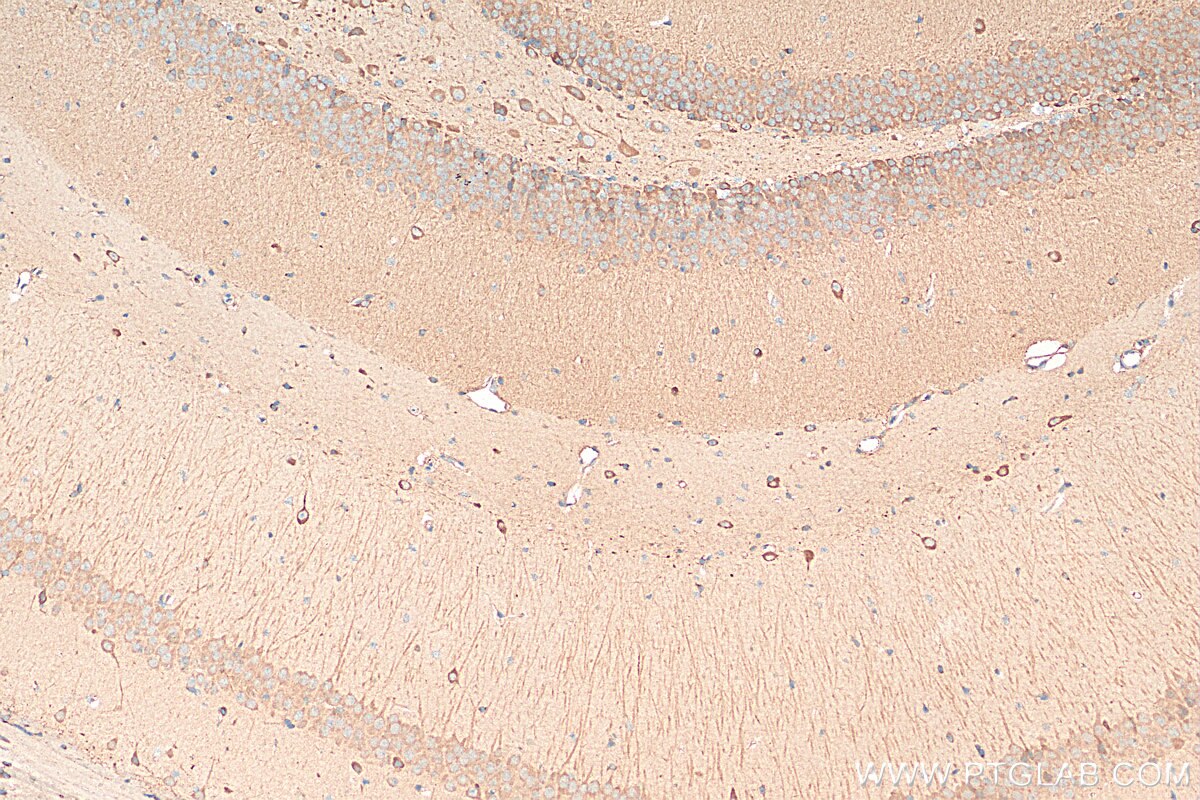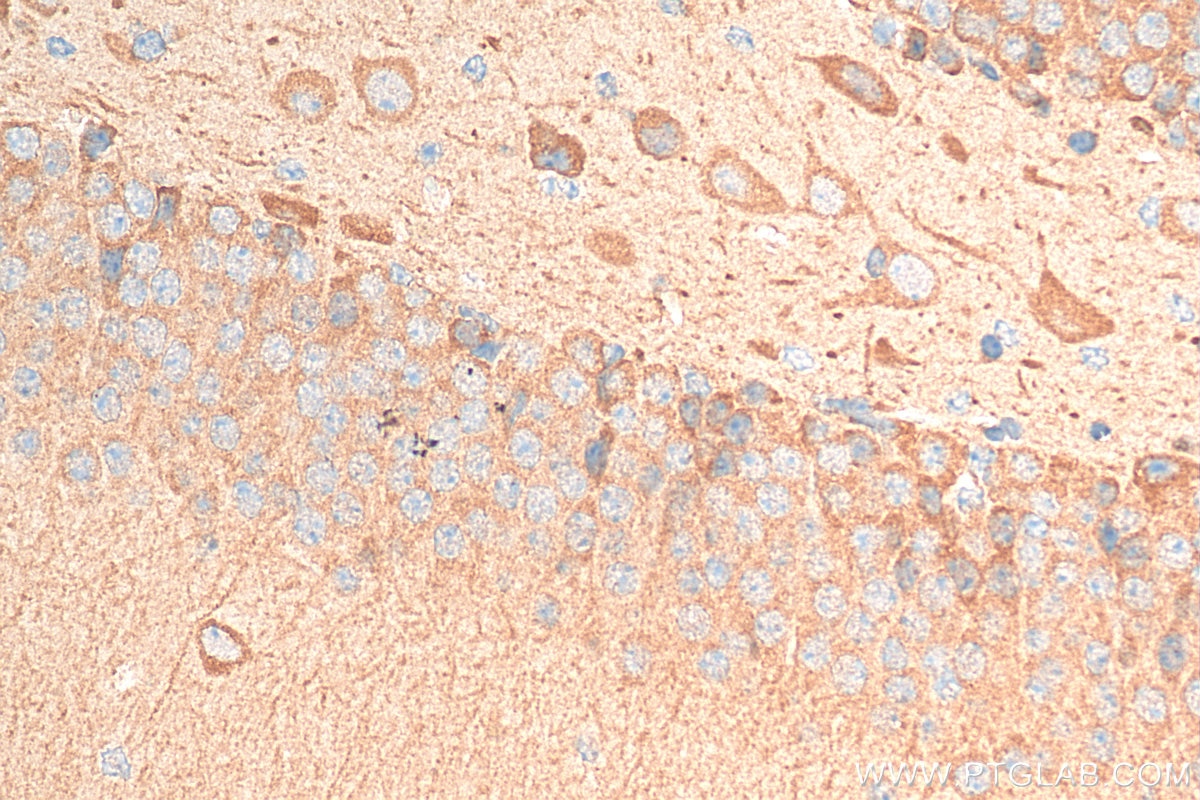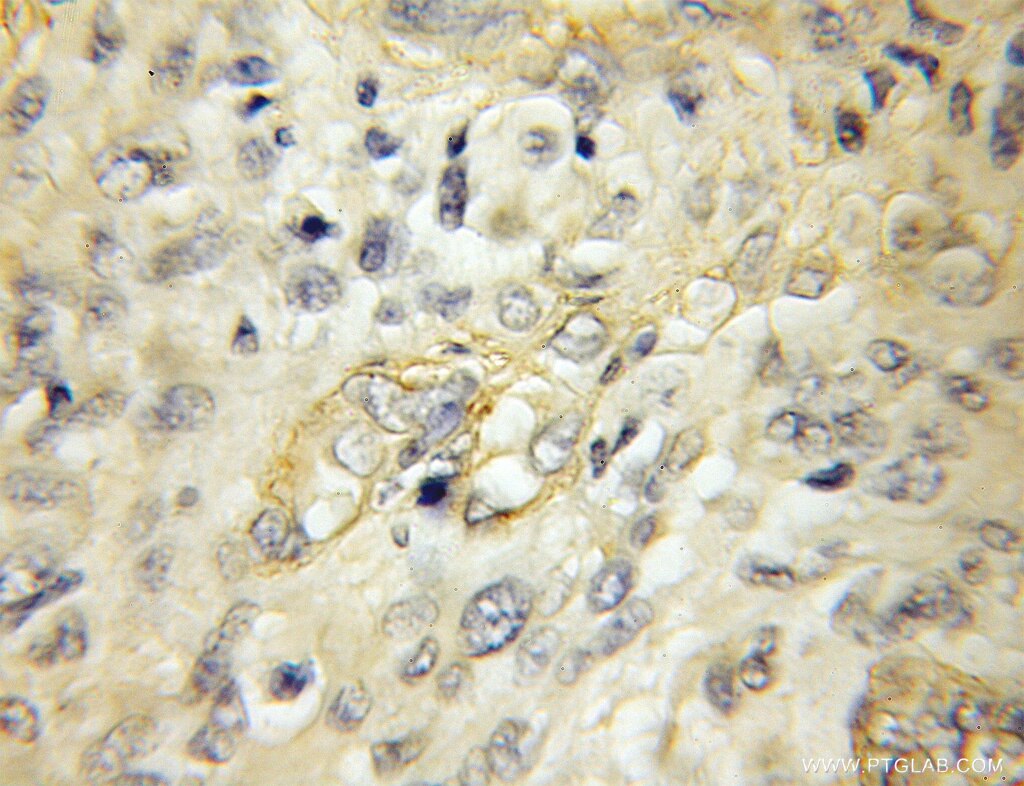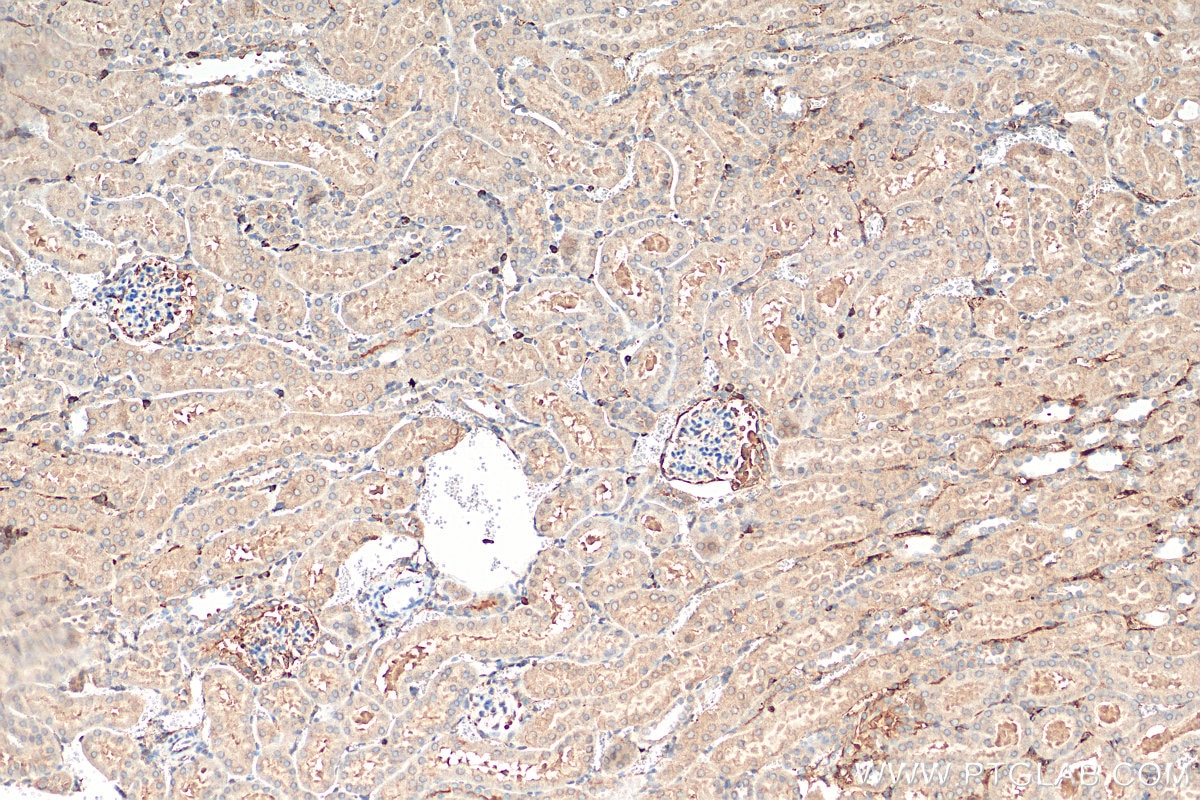PKIB Polyclonal antibody
PKIB Polyclonal Antibody for IHC, ELISA
Host / Isotype
Rabbit / IgG
Reactivity
human, mouse
Applications
IHC, ELISA
Conjugate
Unconjugated
Cat no : 11942-1-AP
Synonyms
Validation Data Gallery
Tested Applications
| Positive IHC detected in | human stomach cancer tissue, human gliomas tissue, mouse kidney tissue, mouse brain tissue Note: suggested antigen retrieval with TE buffer pH 9.0; (*) Alternatively, antigen retrieval may be performed with citrate buffer pH 6.0 |
Recommended dilution
| Application | Dilution |
|---|---|
| Immunohistochemistry (IHC) | IHC : 1:50-1:500 |
| It is recommended that this reagent should be titrated in each testing system to obtain optimal results. | |
| Sample-dependent, Check data in validation data gallery. | |
Product Information
11942-1-AP targets PKIB in IHC, ELISA applications and shows reactivity with human, mouse samples.
| Tested Reactivity | human, mouse |
| Host / Isotype | Rabbit / IgG |
| Class | Polyclonal |
| Type | Antibody |
| Immunogen | PKIB fusion protein Ag2541 |
| Full Name | protein kinase (cAMP-dependent, catalytic) inhibitor beta |
| Calculated Molecular Weight | 78 aa, 9 kDa |
| GenBank Accession Number | BC036011 |
| Gene Symbol | PKIB |
| Gene ID (NCBI) | 5570 |
| Conjugate | Unconjugated |
| Form | Liquid |
| Purification Method | Antigen affinity purification |
| Storage Buffer | PBS with 0.02% sodium azide and 50% glycerol pH 7.3. |
| Storage Conditions | Store at -20°C. Stable for one year after shipment. Aliquoting is unnecessary for -20oC storage. 20ul sizes contain 0.1% BSA. |
Background Information
The cAMP-dependent protein kinase inhibitor-β (PKIB) is also named as PRKACN2. PKIB is presumed to be one of the regulatory factors controlling the cAMP-dependent protein kinase A signaling pathway (PMID: 23224602). PKIB plays an important role in regulating the proliferation, migration, and even metastasis of osteosarcoma (PMID: 17195088). The expression of PKIB in the cytoplasm of tumor is closely related to pAkt and the triple negative breast cancer (PMID: 28387904).
Protocols
| Product Specific Protocols | |
|---|---|
| IHC protocol for PKIB antibody 11942-1-AP | Download protocol |
| Standard Protocols | |
|---|---|
| Click here to view our Standard Protocols |
